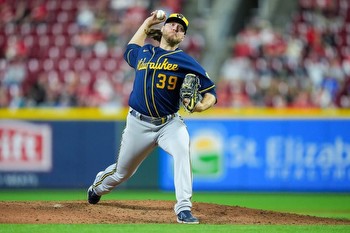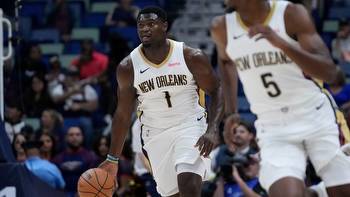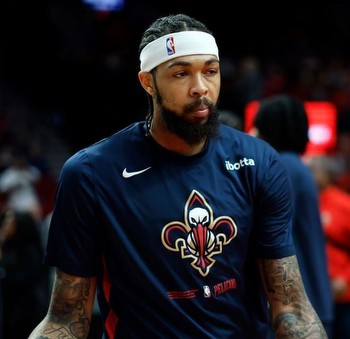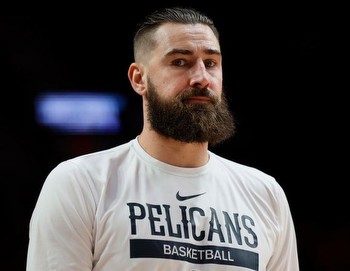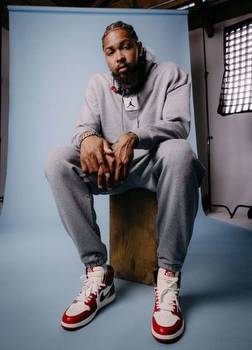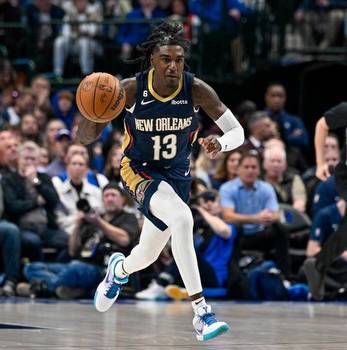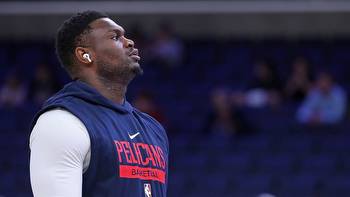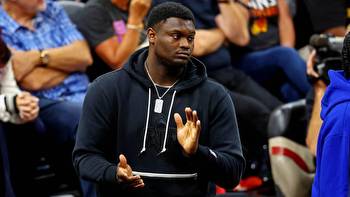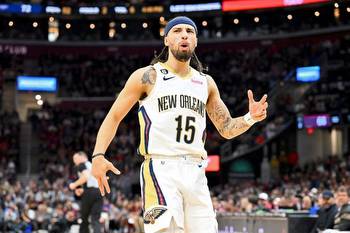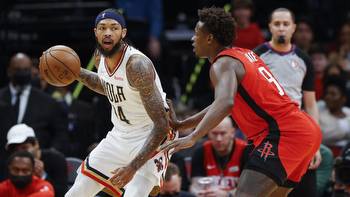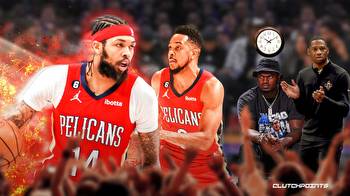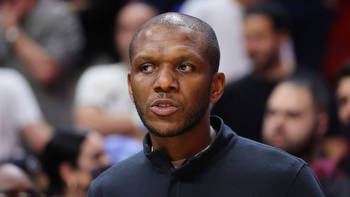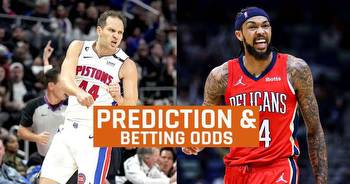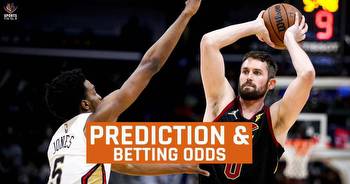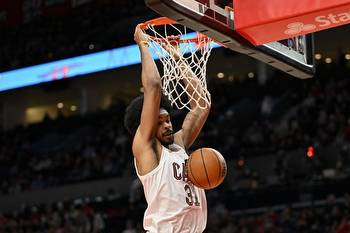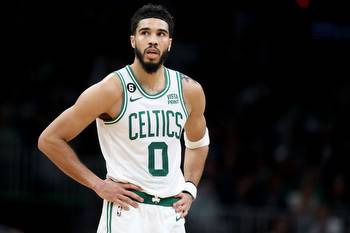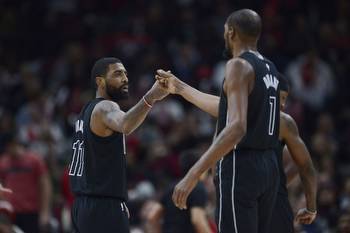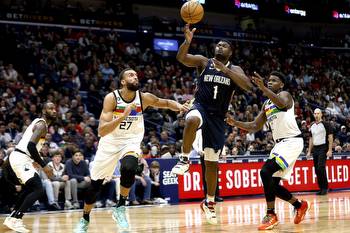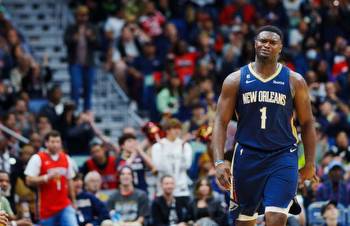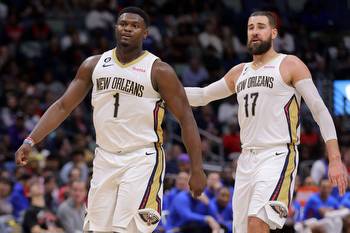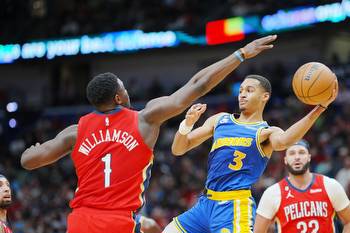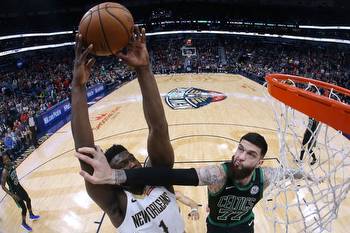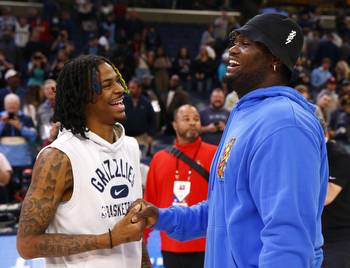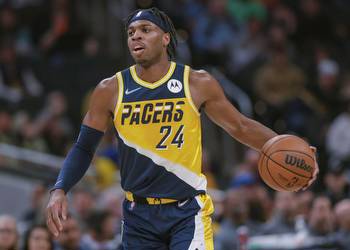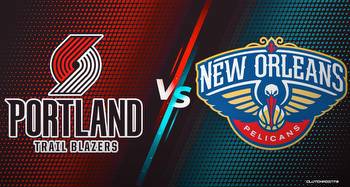Will the New Orleans Pelicans pay a luxury tax next season?
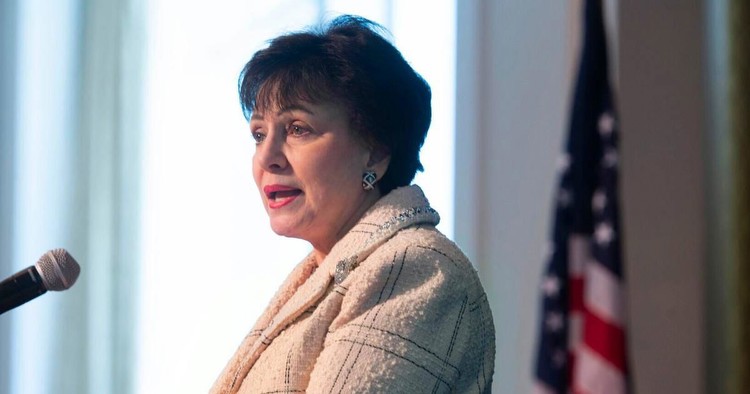
Earlier this month, the New Orleans Pelicans elevated E.J. Liddell from a two-way contract to a full-time roster spot. The three-year, $6.1 million deal Liddell signed put the Pelicans at 14 players and caused the team’s payroll to swell to $168.2 million, roughly $3 million above the NBA’s luxury tax line.
If the Pelicans don’t make any more moves between now and October, they will go into next season in unprecedented territory as an over-the-tax team. The Pelicans, along with the Charlotte Hornets, are one of two NBA franchises to have never paid the luxury tax.
The Pelicans will have until the final day of the regular season to get under the luxury-tax line. If they don’t, they will have to pay a penalty of $4.4 million, according to Spotrac. More significantly, they will also not be eligible to receive their share of the pool of money that gets distributed to nontax-paying teams. This summer, each of the 21 nontax-paying teams received $17.3 million, according to salary cap expert Eric Pincus.
In September, executive vice president David Griffin said he believed owner Gayle Benson would pay a luxury tax under the right circumstances.
"I believe when it’s time to really go all in on something, we will," Griffin said.
But when is the right time? And is it now?
Footing bill for a contender
Five franchises paid the luxury tax in each of the last two seasons. Four of them — the Brooklyn Nets, Golden State Warriors, Los Angeles Lakers and Los Angeles Clippers — are big-market franchises located in coastal glamour markets. The fifth — the Milwaukee Bucks — is a small-market team in flyover country trying to maximize two-time MVP Giannis Antetokounmpo’s best years.
Typically, teams pay the luxury tax only when their owners are especially deep-pocketed, when they believe they have a realistic shot at competing for a championship or both.
The Pelicans are in an interesting position because while they showed tantalizing flashes last season — most notably in late November and early December, when Zion Williamson led them on a seven-game winning streak — they have never experienced sustained success in the last four years. After Williamson injured his hamstring in January, the team sunk to ninth place in the Western Conference. They lost to the Oklahoma City Thunder in the play-in tournament in April and missed the playoffs for the third time in four seasons.
Sources in and around the Pelicans organization told The Times-Picayune that they believe Benson is willing to foot the luxury tax for a contender. However, they expressed skepticism that Benson will pay the luxury tax next season. Their rationale was that it is atypical for a team that just missed the playoffs to pay the luxury tax, especially in a small market such as New Orleans.
In 11 years of Benson ownership, New Orleans usually has finished toward the middle of the pack among NBA teams in spending on payroll. In Anthony Davis’ seven years with the franchise, New Orleans ranked 19th, 18th, 17th, 12th, 16th, sixth and 21st in that category, according to Spotrac. In Williamson’s four years with the team: 25th, 15th, 17th and 16th.
Those rankings make it difficult to argue that the Bensons have skimped on payroll. Yet they are also a reflection of ownership that rarely has been willing to spend aggressively to field a contending team, either.
The Pelicans landed Davis and Williamson out of sheer luck. They won the 2012 lottery, despite a 13.7% chance of doing so. Four months after Davis requested a trade in 2019, the Pelicans won the lottery again, this time hitting on 6% odds.
So far, all the Pelicans have to show from that lottery fortune is seven playoff wins. They swept the Portland Trail Blazers in the first round of the playoffs in 2018, which was their only playoff series win in the Benson era.
To take the next step, the Pelicans need Williamson to play more. At Summer League in Las Vegas, Williamson took responsibility for his diet and conditioning issues since entering the NBA.
“There are a lot of things I could have done better,” Williamson said on Gilbert Arenas’ podcast. “I didn’t. I’m in the process of fixing those wrongs.”
A healthy, in-shape Williamson is what the Pelicans need to jump upwardsin the Western Conference standings. If that happens, there is optimism from people in and around the organization that ownership would be willing to go “all in,” as Griffin put it in September.
The Pelicans chose Kira Lewis with the 13th pick in the 2020 draft. A speedy point guard out of Alabama, Lewis never has been able to carve out a spot in the team’s rotation. Lewis tore the ACL in his right knee in his second season. While he was recovering, Jose Alvarado took over at backup point guard and excelled in that role.
Lewis, who’s still only 22 years old, is now entering the final season of his rookie contract. He is owed $5.7 million. One of the easiest ways for the Pelicans to duck under the luxury tax ahead of this season is to trade Lewis and add a player who makes $2.8 million or less.
If the Pelicans go this route, they must be mindful not to attach too many assets to get the deal done. The Pelicans traded Devonte’ Graham to San Antonio in a salary-shedding move in February. They had to attach four second-round picks to complete the deal.
If the Pelicans choose not to trade Lewis or any of the other players on their roster before the 2023-24 season starts, they still have until the trade deadline in early 2024 to maneuver under the luxury tax.
Multiple sources told The Times-Picayune that if the Pelicans go into the regular season an over-the-tax team, they could envision a scenario where ownership footed a luxury tax if the team was near the top of the Western Conference by the time the trade deadline rolled around.
While the early indications from oddsmakers is that this seems unlikely, it’s certainly not impossible. After all, the Pelicans were in third place in the Western Conference when Williamson played in his final game of the regular season in January.
